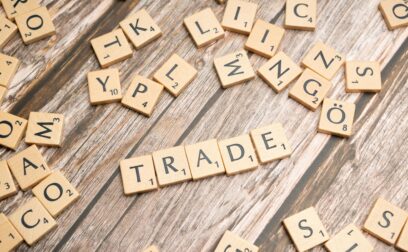TABLE OF CONTENTS
If you’re looking to purchase an existing business, you may consider a loan from the U.S. Small Business Administration (SBA).
Page written by Kat Cox. Last reviewed on August 12, 2024. Next review due October 1, 2026.

SBA business acquisition loans are available to qualified borrowers under the SBA 7(a) loan program. Read on to learn more about SBA business acquisition loans, including how to qualify and apply.
Simply put, a business acquisition is when an entity purchases an existing business and takes over business operations. The SBA also has a specific definition for their loan programs. Any change of business ownership in which a majority of the assets are sold through asset or stock purchases and where the business’s operations continue is considered to be a business acquisition by the SBA.
As one of the most popular and common SBA loan programs, the SBA 7(a) loan is meant for small businesses who may have difficulty securing traditional funding elsewhere. The SBA 7(a) loan is meant for a number of purposes, including:
An SBA 7(a) loan can also be used to purchase an existing business, including expanding an existing business or even purchasing a franchise.
Anyone who qualifies for an SBA 7(a) loan and wants to use it for a business acquisition loan can do so. This includes:
You must also meet the requirements of an SBA 7(a) loan, including being a US-based, for-profit business that can prove the need for funding. This means you must have already attempted other types of financing, including your own personal funds or equity. The SBA also has guidelines on what constitutes a “small business” – usually that your revenue is between $1 million and $40 million and that you have 100 to 1,500 employees. The SBA also has requirements around which industries a business can be involved in to qualify for an SBA loan. For instance, you can’t be operating an illegal business or a business in certain industries like gambling or cannabis.
Because SBA loans are administered by other financial institutions, other qualifications will depend on the lender you choose. It’s important to find the right lender for your needs and to make sure you meet their qualifications for creditworthiness, which can include credit score, business history and annual revenue.
If a completely new owner is acquiring a business, the SBA will ask that the buyer make a 10% equity injection. This is based on how much it costs to finance the business, including not only the loan amount but any fees.
In order for an existing partner or owner to use an SBA business acquisition loan to acquire the fully business, the lender will determine how much equity the owner or owners will have to put up. However, the SBA does enforce certain minimum requirements, such as:
Before you borrow a loan to acquire a business, it’s important to determine its business value. There are two ways to do this: internally or through a third party. A business valuation will include assessing how much a business is worth based on income, assets and liabilities.
The business valuation will help the lender determine how much of a down payment the buyer will need to secure the loan. A buyer is expected to put down at least 10% of the purchase price for an SBA business acquisition loan, but the lender will decide the downpayment based on the business valuation.
Lenders will want to make sure that the business being purchased is profitable enough for the new owner to make loan payments going forward. The SBA also wants to know if the buyer and seller have a close relationship (e.g. family members or business partners).
An internal valuation is one that is conducted by someone who is employed either by the buyer or seller of the business. This can include a related company manager. If your SBA loan will be $250,000 or less and the buyer and seller don’t have an existing close relationship, you can use an internal business valuation.
If you want to finance more than $250,000 for the business acquisition loan or if the buyer and seller have a close relationship, you’ll need to find a third-party to do the valuation. A third-party valuation is conducted by an independent advisory firm, usually one that specializes in business valuation.
If an existing manager or partner wants to buy out the existing business, the SBA requires certification that the buyers have been involved as an owner in the business’s operation for at least two years. Also, the owners will have to submit balance sheets and financials for the most recent fiscal year plus the current quarter. The debt-to-worth ratio will have to be valued as less than 9:1, too.
The best loan for your business is the one that you qualify for. The SBA Community Advantage loan program is particularly good for new businesses and those that may have trouble securing traditional financing or loans. But there are a few other questions you may ask yourself before you apply:
Find the best SBA business acquisition loan for your needs with Swoop. Simply download our app, answer a few questions and a Swoop professional will guide you through the process, from selecting a lender to funding.
As a B2B finance content specialist, Kat Cox's goal is to distill complicated financial issues into useful information for small business owners, to save them time they could be using to build their companies. Her work has been featured in Forbes and on financial health platform Nav.com. When she's not writing blogs, web copy, or fiction, Kat can be found walking her dog or singing karaoke in Austin, Texas.
Swoop promise
At Swoop we want to make it easy for SMEs to understand the sometimes overwhelming world of business finance and insurance. Our goal is simple – to distill complex topics, unravel jargon, offer transparent and impartial information, and empower businesses to make smart financial decisions with confidence.
Find out more about Swoop’s editorial principles by reading our editorial policy.
Related pages
Daire made it happen! There is no doubt that Swoop sped up the process and found lenders that worked to our time scale rather than the other way round
Hocque Figureoa
Joint owner, F45 Virginia
Swoop was actually very helpful in helping us get our initial fundraising in place. Swoop was able to connect us with investors, with grant financing options and debt financing options.
Viler Lika
Founder, SingleKey
Pedja was amazing. Super supportive, understanding of our needs and wasn't pushy at all. We've been going back and forth with Swoop for over a year inquiring about different financing options and they were patient until we were ready!
Chris Skeates
F45 Multi-studio owner
Join the 95,000+ businesses just like yours getting the Swoop newsletter.
Free. No spam. Opt out whenever you like.
Kingfisher Way, Silverlink Business Park, Newcastle upon Tyne, NE28 9NX, UK
View in Google Maps35 Bull Street, Lewis Building, Birmingham B4 6AF, UK
View in Google MapsAberystwyth Innovation and Enterprise Campus
Gogerddan Campus
Aberystwyth University
Ceredigion
SY23 3EE
Dogpatch Labs, The CHQ Building, Custom House Quay, Dublin, Ireland
View in Google MapsSuite 801, Level 8, 84 Pitt Street, Sydney, NSW 2000, Australia
View in Google Maps43 W 23rd St, New York, NY 10010, United States
View in Google Maps21 Dreyer Street, Cape Town, South Africa, 7708
View in Google MapsClever finance tips and the latest news
Delivered to your inbox monthly
Join the 95,000+ businesses just like yours getting the Swoop newsletter. Free. No spam. Opt out whenever you like.




